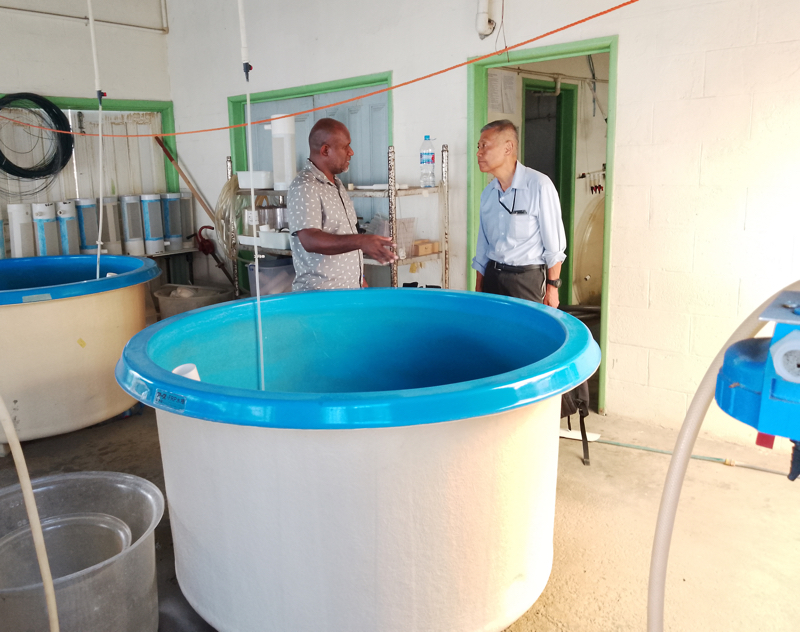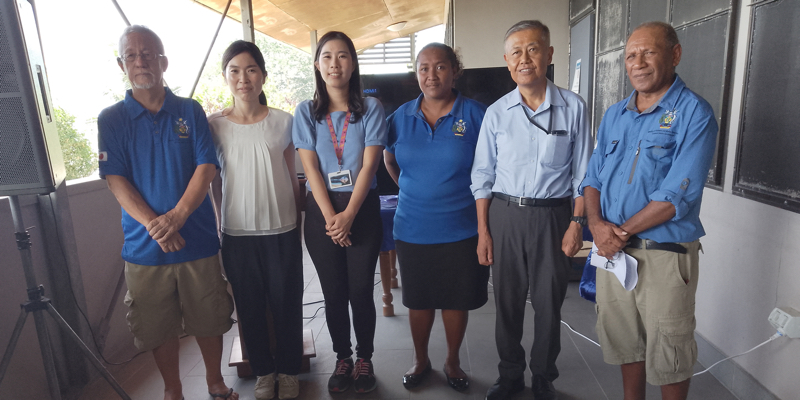THE Ministry of Fisheries and Marine Resources (MFMR) this week hosted a delegation from Japan, led by Ambassador Miwa Yoshiaki, who reaffirmed Japan’s sustained support to the Solomon Islands’ fisheries sector.
This ongoing support is rooted in Japan’s early commitment to developing the fisheries infrastructure in the Solomon Islands, particularly marked by the establishment of the first Fisheries Center in Auki, Malaita Province, in 1979.
During the official welcome, Supervising Director of Fisheries, Bennie Buga expressed his gratitude for Japan’s unwavering support over the decades.
“Japan has been a vital partner in our fisheries development efforts, dating back to the early 1970s,”
Mr Buga highlighted the establishment of the Solomon Taiyo Tuna Canning Factory in 1973, a joint venture between the Solomon Islands Government (SIG) and Taiyo Gyogyo Ltd of Japan. The factory, now known as Soltuna Ltd, remains a major player in the region, particularly for its popular canned chili tuna.
Japan’s commitment was further solidified in 1979 with the development of Fisheries Centers, starting with the first in Auki. From 1980 to 1990, additional centers were built in other provinces under Japanese government support through the Overseas Fisheries Cooperation Foundation (OFCF) of Japan. This foundational development is the reason Japan continues to provide substantial support to the Ministry of Fisheries to this day, through various programs such as the JICA project, OFCF FDAPIN Project, OFCF Sea Cucumber project and other related support services.

Ambassador Yoshiaki stressed the importance of this long-standing partnership, stating, “Fisheries connect Japan and the Solomon Islands, and that is one thing we have in common. For us, fisheries are very important, and there are many things we can share together.”
He also called for greater focus on coastal fisheries, emphasizing the need to empower rural fishers and explore new methods for catching, processing, and exporting fish.
Additionally, the ambassador highlighted the potential benefits of integrating fisheries with agriculture to enhance local production.
He said by planting crops like corn and soybeans and combining them with fish, the Solomon Islands could produce local chicken feed, thereby reducing the high cost of imported eggs. “This innovative approach could maximize the benefits from sea resources.
In a further show of support, Ambassador Yoshiaki announced an upcoming Memorandum of Understanding (MoU) signing ceremony at the Solomon Islands National University (SINU) School of Fisheries Studies, where the Ministry of Foreign Affairs of Japan will donate a research center to the university’s fisheries school. He hinted at extending similar support to the agriculture and forestry sectors.
Following the speeches, two presentations detailed the support the MFME has received from Japan, including the provision of equipment, vehicles, renovation work, and the development of an aquaculture office space and hatchery project.
A guided tour of the complex showcased the equipment supplied through the OFCF Development Assistance for Pacific Islands Project and the hatchery facilities.
The visit marked yet another chapter in the enduring partnership between Japan and the Solomon Islands, reinforcing a shared commitment to sustainable fisheries and community development.
The foundation laid by Japan’s early investments in the fisheries sector remains a key feature of this long-standing relationship.
- MFMR









